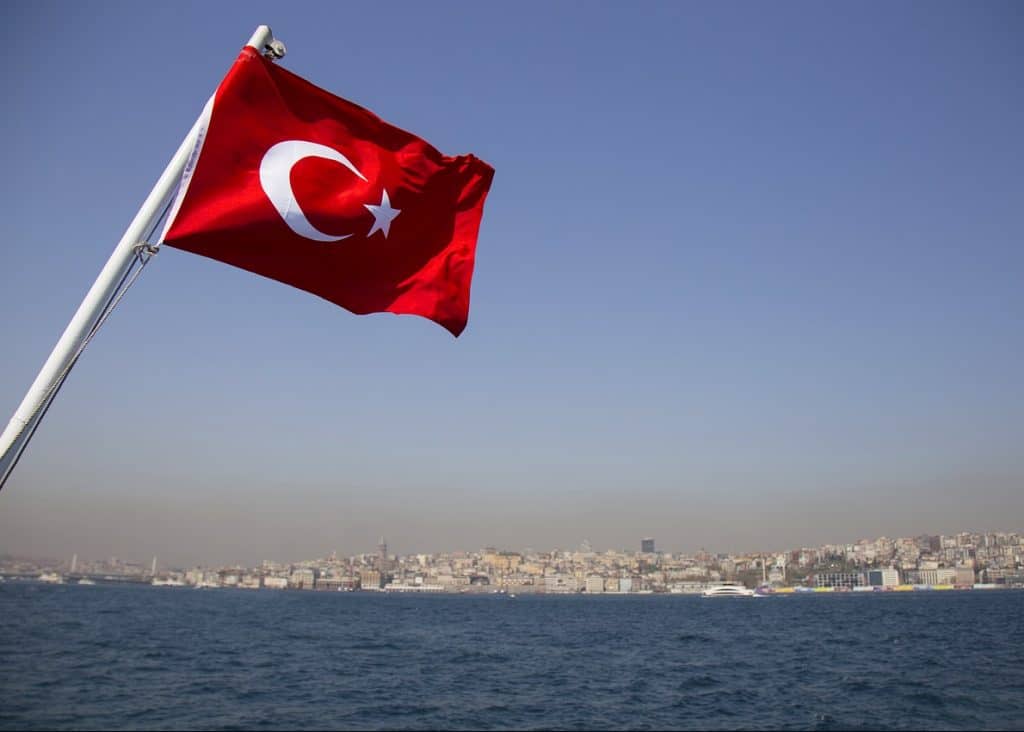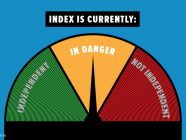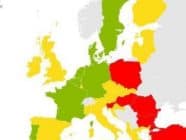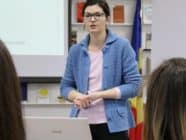
Since the attempted coup of 2016, practically the entire media landscape in Turkey has come under government control.
Turkey is currently the largest prison for journalists in the world, with over 80 media workers in detention. Not content with that, the Turkish parliament has now passed a law that gives the government more control over social networks. Sofia Verza and Fazıla Mat assess the situation.
Four years after the attempted coup of 15-16 July 2016, the space for media pluralism in Turkey continues to shrink. New laws recently introduced or coming into effect suggest an intention to restrict even further the space in which the few independent outlets can operate, while numerous pro-government media dominate the scene. The entire landscape of traditional media, from TV to the press and the radio, is subject to more or less direct control by the Turkish government: one only has to consider the fact that, since the attempted coup of 2016, 170 outlets (newspapers, TV stations, press agencies, and online news sites that were seen as being subversive for various reasons) have been shut down or brought under government control, increasing the already high concentration of ownership in the Turkish media.
On the mainstream media front, a key turning point in the ownership structure was the sale, in 2018, of the Doğan media group to the Demirören industrial conglomerate founded by Erdoğan Demirören, a businessman known for his pro-government stance. The transfer of assets included some of Turkey’s most popular media, such as the CNN Türk television network, the Hürriyet newspaper and the Dha news agency. It also had a negative effect on the circulations of small independent newspapers across the country.
According to the Media Ownership Monitor report for Turkey, currently around 71% of the country’s media belongs to four companies close to the government: Turkuvaz/Kalyon, Doğuş, Ciner and Demirören. Together with the Albayrak and İhlas groups, these companies own the 40 most popular news outlets in the country and have interests in several other sectors, including construction, mining, oil, finance, tourism and telecommunications. Turkish Fox TV, which belongs to the Walt Disney Company, is the only one out of 10 top television networks to remain outside this structure. According to the Reuters Institute Digital News Report (2020), the news programmes of Fox TV have the greatest reach and the channel is considered to be the most reliable as a source of news. Given that more than 70% of the population gets its news from television, this shows the demand for an independent news source. This level of demand is also apparent from the regular use of online media – including social media – which in urban areas exceeds 80%, according to the Digital News Report, even if only 55% of users trust the information they receive.
Criminalising journalism
Journalists – in particular those who work for pro-Kurdish media – are regularly charged with offences against the president and the nation
Censorship and self-censorship are routine in Turkey, including in the southeast of the country, where there is a Kurdish majority. Diyarbakır-based journalist Hatice Kamer says that the failure of the peace process with Kurdish armed groups in August 2015 and the clashes that followed meant that people were less prepared to speak out. “Previously, when police power was not as extensive, people were not afraid to express their dissent or anger. After the attempted coup, the decrees, the layoffs, and the blacklisting of people, it became almost impossible for a journalist to work in the field, as there was such a feeling of insecurity that people were no longer willing to talk”, Kamer says.
The Covid-19 pandemic seems to have provided yet another opportunity to criminalise thought
The Covid-19 pandemic seems to have provided yet another opportunity to criminalise thought: as a recent Amnesty International report explains, criticism of the authorities’ management of the health emergency led to charges attracting prison sentences of between two and four years. “If the news item put out by the journalist does not tally with the data and statements issued by the authorities, there can be complications”, says Kamer. In March 2020 alone, 12 journalists were arrested for inciting “disobedience of the laws” and “hatred”, while many doctors were accused of disseminating false news and “spreading panic among the population”. The attitude of the authorities became all too apparent in mid-April 2020 when, to reduce the risk of Covid-19 infection in Turkish prisons, 90,000 people were set free under a package of reforms that excluded journalists, activists, and others charged with political crimes.
Following what has become a familiar pattern, when reporting on the health emergency Turkey’s mainstream media “faithfully reproduce the presidential narrative […] with a long sequence of reassuring news items. […] Drama and catastrophism dominate foreign news coverage. Continuous updates underline, in a manner that is almost pleased, the gravity of the situation elsewhere” (Salomoni, 2020). When it is a question of problems within the country, there is all-pervasive control of the tone of the journalistic narrative: “If there’s an increase in the cost of petrol, mainstream newspapers don’t use the word increase, but instead speak of adjusting the price of fuel”, notes the journalist Bülent Mumay.
The presidential system and other methods of control
The presidential system introduced in July 2018, during the state of emergency declared immediately after the attempted coup, resulted in an increase in the powers of the president of the republic at the expense of those of parliament and other state institutions. According to Mumay, “the real change is that now any public institution is legally tied to the presidency”. This means, for example, that cards proving journalists’ membership of their professional association can only be issued by the Directorate of Communication of the Presidency. Under the previous system, unions still exerted some influence on the final decision, as Gökhan Durmuş, secretary of the journalists’ union Türk-İş, explains. “Now the central authority decides who gets to be a journalist”, says Hatice Kamer, “therefore working in the field without a card becomes almost impossible”.
“The Presidency’s communication department is in direct contact with the Superior Council for Radio and Television (RTÜK) and the Agency for Advertising in the Press (BİK)”, explains Mumay. The latter body is legally obliged to distribute official advertisements to all print newspapers – an important source of income for them. But there is a certain arbitrariness in the way in which these are allocated, as is evidenced by the case of the opposition newspapers Evrensel and Birgün, which were recently deprived of this advertising revenue after they were accused of “violating the ethical principles of the press”. Similarly, the broadcasting regulator RTÜK is often accused of lacking independence and acting as a censor, through fines. RTÜK also has the authority to suspend broadcasts it considers to be offensive, as happened recently with the Tele1 and Halk TV networks, which had 5-day broadcast bans imposed on them. In the event of a second suspension, the channels would be stripped of their broadcasting licenses.
The Internet: another target for censorship?
Online media outlets – TV channels on YouTube, news websites and podcasts – have proliferated in a bid to evade state control and offer an alternative narrative. The Internet, however, has also become a target for censorship: primarily through the takedown of content and the blocking of web pages, including entire sites as in the case of Wikipedia, which was inaccessible in Turkey from April 2017 to January 2020. A Social Media Monitoring Unit was set up in the last few years, and in 2016 the government launched an app that allows citizens to report posts they consider to be terrorist propaganda.
Turkey also stands out for the frequency with which it requests user data from Facebook, especially against those with legal proceedings in progress. Facebook complies in 79% of the requests it receives from the Turkish government: platforms such as Facebook and Twitter – which in Turkey register among the highest subscriber rates in the world – are unlikely to ignore pressure from the authorities and risk losing such an important market.
Courts will from now on be able to order the removal of online content, not just block access to it
The government’s online strategy has also become more refined in recent years, with the emergence of numerous pro-government social accounts and “trolls” that attack and report opposition users and try to “overwhelm opponents with too much information“. “Since Erdoğan became president, the trolls have acted as ‘agents of culture’, building a new conservative agenda, targeting movements, women, LGBT people…”, says Erkan Saka, a professor at the School of Communication of Istanbul’s Bilgi University. In June 2020, Twitter suspended 7,340 “fake and compromised accounts” it said were being used to amplify political narratives favourable to President Erdoğan’s AKP party. The trajectory of state intervention online appears to have gone through all three “generations of control” of the Internet identified by Deibert and others in Access Controlled (2010) – from imposing a complete block to indirect interference in the production of content. Despite this disheartening landscape, some of our respondents are optimistic about the role of digital media as alternative channels of information. “They can be censored, but there is always a way to get round this”, says journalist Bülent Mumay.
Fears for the future
It is worth remembering that Erdoğan’s AKP party has been in power since 2002, and that the Turkish media system has never been free from polarisation and strict state control. However, journalist Mehveş Evin recalls that “until five years ago, publishing something that was unashamedly a kind of propaganda […] was considered to be extremely unseemly in the profession. But now it seems to be accepted to such an extent that we are surprised when we come across a good example of journalism”. Furthermore, Evin continues, “the fact that so many colleagues are under investigation, in prison or in exile inevitably has a significant psychological impact, leading us to practise self-censorship. As a result, the quality of journalism is affected from one day to the next: I wonder if, once a certain threshold has been passed, it is possible to restore the dignity of the profession”.
This article first appeared on EJO Italian and is published in collaboration with Osservatorio Balcani e Caucaso Transeuropa (OBCT).
Opinions expressed on this website are those of the authors alone and do not necessarily reflect or represent the views, policies or positions of the EJO.
If you liked this story, you may also be interested in “Turkey: 100 media outlets closed, 30 journalists detained“
Sign up for the EJO’s regular monthly newsletter or follow us on Facebook and Twitter.
Image by Engin Akyurt from Pixabay / License: CC0 1.0
Tags: Censorship, Concentration of Media Ownership, media capture, Media Pluralism, self-censorship












































